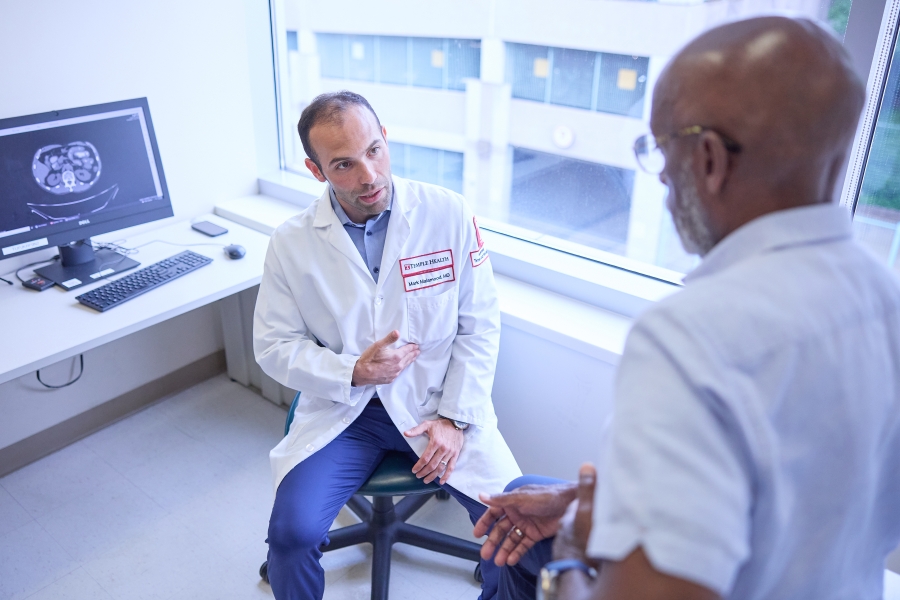- Achalasia (tightness in the digestive tract—usually the esophagus--in which the muscles are unable to relax)
- Barrett’s esophagus (a consequence of acid reflux; the cells of the throat adapt to the acidic environment in ways that raise the risk of esophageal cancer)
- Chronic gastroesophageal reflux disease (GERD, also know as acid reflux)
- Esophageal motility disorders (problems with muscle movement in the esophagus)
- Fecal incontinence (lack of bowel control)
- Gastroparesis (problems with stomach muscles that slow the movement of food out of the stomach and into the small intestine)
- Irritable bowel syndrome
- Chronic constipation
- Dyssynergic defecation (inability to pass stool due to bowel nerve and muscle problems)
- Eosinophilic esophagitis, gastroenteritis, and colitis (abnormal inflammation of the esophagus, stomach, small intestines or colon by a specific type of white blood cell known as eosinophils)
Motility Disorders Program Conditions and Treatments
Conditions Treated
Treatment Options
Temple’s experienced team can provide many options for treating your digestive motility disorder. These include:
- Help with dietary changes and nutritional counseling for GERD, gastroparesis, IBS, constipation
- Medications and medication management
- Botox injections for achalasia
- Nonsurgical endoscopic treatments for achalasia and Barrett’s esophagus, including ablation therapy for Barrett’s esophagus
- Minimally invasive endoscopic, laparoscopic or robotic surgery for achalasia, GERD, or gastroparesis — including fundoplication (which constricts the opening between the esophagus and the stomach to prevent acid reflux)
- POEM (peroral endoscopic myotomy) for achalasia
- Implantable electric stimulators to treat gastroparesis
- G-POEM for gastroparesis
- Anorectal manometry and biofeedback (using tests of muscle movement in combination with special exercises to retrain pelvic floor muscles) for treatment of fecal incontinence, chronic constipation or dyssynergic defecation
- Endoscopic functional luminal imaging probe (EndoFLIP)
- Sacral nerve stimulation or for treatment of fecal incontinence
- Solesta injections for treatment of fecal incontinence

